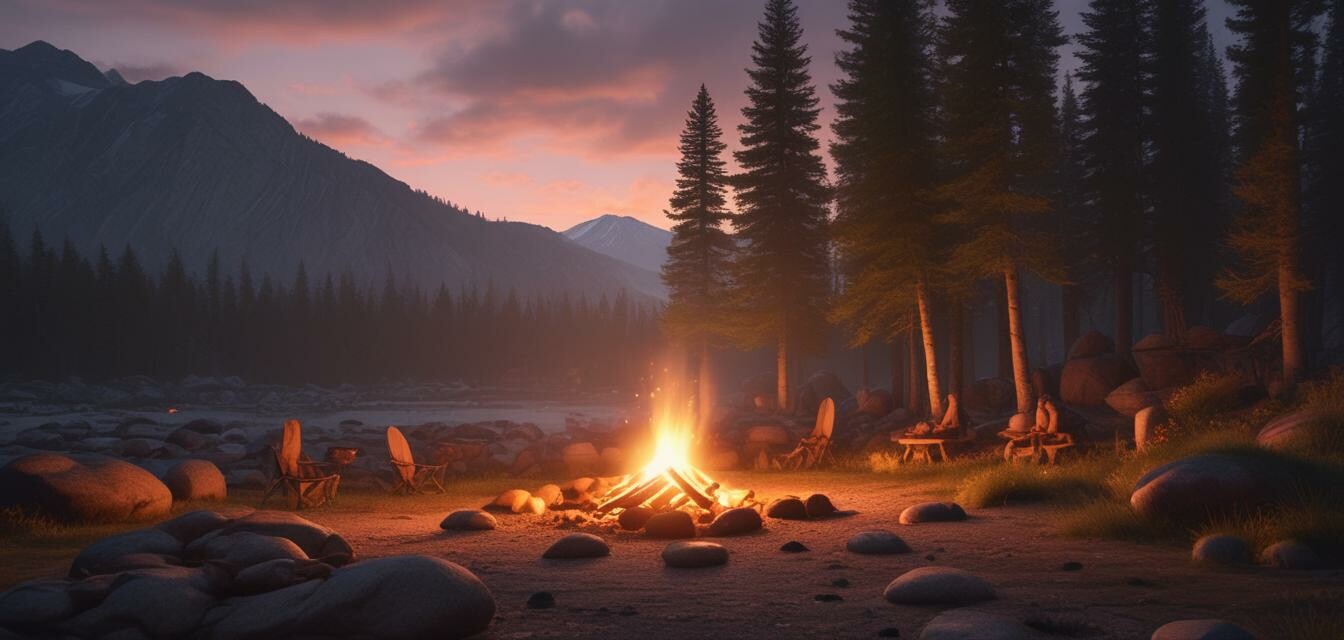
Handling Campfire Safety: Tips for New Campers
Key Takeaways
- Always check local regulations regarding campfires.
- Keep a safe distance from flammable materials.
- Stay informed about weather conditions that can affect fire safety.
- Extinguish campfires completely before leaving the site.
- Use fire rings or pits when available to contain your fire.
Campfires are a beloved part of the camping experience, providing warmth, light, and a place to gather. However, they come with responsibilities. For new campers, understanding how to handle campfire safety is vital to ensure a fun and safe outdoor experience. In this article, we'll guide you through essential safety guidelines for managing campfires, preventing accidents, and keeping the environment safe.
1. Understand Local Regulations
Different areas have specific rules regarding campfires, especially during dry seasons. It’s essential to:
- Check if campfires are allowed in your campsite.
- Look for any fire bans or restrictions in place.
- Get familiar with designated fire rings or pits.
2. Choosing the Right Location
When selecting a spot for your campfire, consider the following:
- Choose an area away from tents, gear, and overhanging branches.
- Avoid placing the fire near flammable materials, such as dry leaves or wooden structures.
- Use existing fire pits to minimize environmental impact.
3. Building a Safe Fire
Building a campfire correctly is crucial for safety. Here’s a simplified step-by-step guide:
- Clear the area of any debris and flammable materials.
- Use a metal fire ring if available.
- Start your fire with tinder (dry leaves, grass), followed by small sticks or kindling.
- Gradually add larger pieces of wood as the fire grows.
4. Fire Maintenance
While enjoying your campfire, keep these safety tips in mind:
- Never leave the fire unattended. Always have a responsible adult present.
- Keep a bucket of water or dirt nearby in case of emergencies.
- Don’t let children play near the fire.
5. Understanding Weather Conditions
The weather can greatly influence fire safety. Always:
- Stay aware of wind direction to prevent the spread of sparks.
- Avoid making a fire on windy days.
- Be cautious during dry spells when fire restrictions may be in effect.
6. Extinguishing Your Campfire
Properly extinguishing your campfire is critical. Follow these steps:
- Spread out the ashes and embers to cool them off.
- Pour water over the fire (do not use dirt as it can allow embers to smolder unnoticed).
- Stir the ashes and pour more water until they are cool to the touch.
7. Environmental Considerations
Respecting nature is key when camping. Ensure that:
- You only use dead and downed wood for fuel.
- All fires are fully extinguished before leaving the campsite.
- You pack out what you pack in, including fire remains.
8. Additional Tips for Beginners
Here are some quick tips for those new to campfires:
- Practice starting a fire at home before your trip.
- Bring fire starters to help, especially in wet conditions.
- Learn local wildlife behavior; some animals may be attracted to food or smoke.
Conclusion
Handling campfire safety is an essential skill for every camper to learn. By following these tips and understanding how to manage your campfire, you'll be empowered to enjoy a safe and memorable camping experience. For more camping insights, check out our Camping Tips and Tricks section where we share valuable insights tailored for beginners.
Pros
- Provides warmth and light for nighttime activities.
- Creates a gathering spot for storytelling and bonding.
- Enables outdoor cooking opportunities.
Cons
- Can pose risks of wildfires if not managed properly.
- Requires careful attention and maintenance.
- Can attract wildlife if food is around.